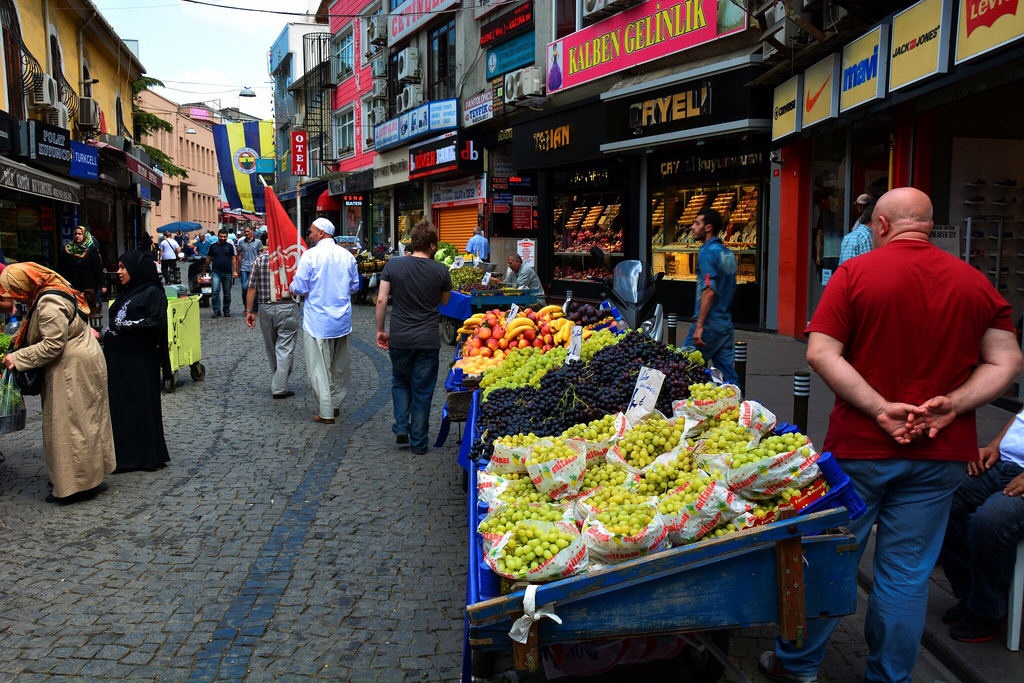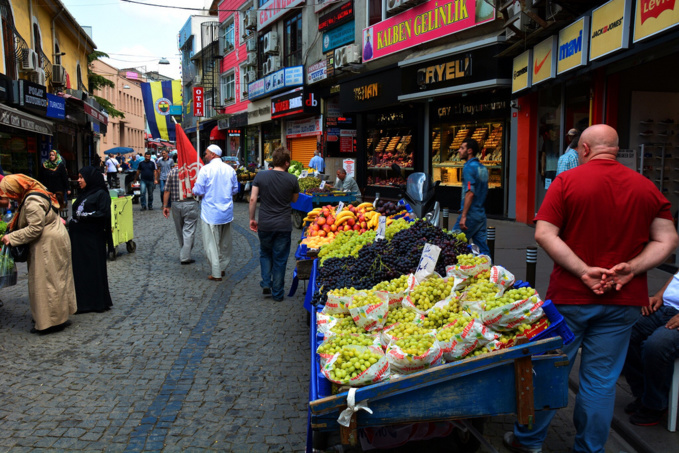According to the Bank for International Settlements (BIS), for 15 years to 2016, the credit boom in Turkey was so turbulent that it surpassed in size other emerging economies, including Russia, China, India and Brazil.
Suffice it to say that back in 2001, the volume of loans to non-financial private companies was only 14.5% of GDP, and in 2016 the figure amounted to 62%.
There was a rapid growth in lending in all these countries, but all of them faced crises. All except Turkey. Indeed, there was no serious crisis in this country, says Charles Robertson, chief economist at Renaissance Capital in London, in an interview with Bloomberg.
Since 2003, the country's economic growth amounted to 5.6% of GDP, despite the financial crisis of 2008, the war in Syria, terrorism and the failed coup. The poverty level has halved in the period from 2002 to 2012, according to the World Bank.
The difficulty lies also in the fact that thanks to the state program of lending support in Turkey accepts anyone, even unreliable borrowers.
"As a result, many of these companies are already not in a position to service their debts," says Charles Robertson.
Experts also note that without growth in labor productivity, the credit boom in the private sector almost always ends pitifully.
Turkey can be compared with Greece. For about ten years, the growth rate of lending in Turkey and Greece was almost the same - until 2010, when Athens needed external financial assistance.
We all know how the Greek crisis ended. By the way, it’s not over yet, just this year the issue of the next tranche of aid to the Greeks did not become the number one topic.
About a year ago, on July 16, 2016, an attempt of coup d'état took place in Turkey. However, the problems were already beginning to manifest before the coup attempt. The unemployment rate reached 13% in January this year, and it has been growing since 2012, according to the Institute of Statistics of Turkey.
Currently, the average unemployment rate in OECD countries is 5.9%.
However, according to forecasts, by 2018 the unemployment rate in Turkey will hardly decrease to less than 10%.
The World Bank says that economic growth in the country has slowed down since 2012, and income per capita keeps stagnating.
Why then is the Turkish economy still showing high growth rates? There are several explanations. Some experts are sure that the collapsed exchange rate leveraged exports by 10.6%.
Others note the possible effect of the new method of calculating GDP, which was introduced by the Institute of Statistics of Turkey at the end of 2016. This method uses the EU scheme’s to measure the size of an economy.
source: bloomberg.com
Suffice it to say that back in 2001, the volume of loans to non-financial private companies was only 14.5% of GDP, and in 2016 the figure amounted to 62%.
There was a rapid growth in lending in all these countries, but all of them faced crises. All except Turkey. Indeed, there was no serious crisis in this country, says Charles Robertson, chief economist at Renaissance Capital in London, in an interview with Bloomberg.
Since 2003, the country's economic growth amounted to 5.6% of GDP, despite the financial crisis of 2008, the war in Syria, terrorism and the failed coup. The poverty level has halved in the period from 2002 to 2012, according to the World Bank.
The difficulty lies also in the fact that thanks to the state program of lending support in Turkey accepts anyone, even unreliable borrowers.
"As a result, many of these companies are already not in a position to service their debts," says Charles Robertson.
Experts also note that without growth in labor productivity, the credit boom in the private sector almost always ends pitifully.
Turkey can be compared with Greece. For about ten years, the growth rate of lending in Turkey and Greece was almost the same - until 2010, when Athens needed external financial assistance.
We all know how the Greek crisis ended. By the way, it’s not over yet, just this year the issue of the next tranche of aid to the Greeks did not become the number one topic.
About a year ago, on July 16, 2016, an attempt of coup d'état took place in Turkey. However, the problems were already beginning to manifest before the coup attempt. The unemployment rate reached 13% in January this year, and it has been growing since 2012, according to the Institute of Statistics of Turkey.
Currently, the average unemployment rate in OECD countries is 5.9%.
However, according to forecasts, by 2018 the unemployment rate in Turkey will hardly decrease to less than 10%.
The World Bank says that economic growth in the country has slowed down since 2012, and income per capita keeps stagnating.
Why then is the Turkish economy still showing high growth rates? There are several explanations. Some experts are sure that the collapsed exchange rate leveraged exports by 10.6%.
Others note the possible effect of the new method of calculating GDP, which was introduced by the Institute of Statistics of Turkey at the end of 2016. This method uses the EU scheme’s to measure the size of an economy.
source: bloomberg.com



















